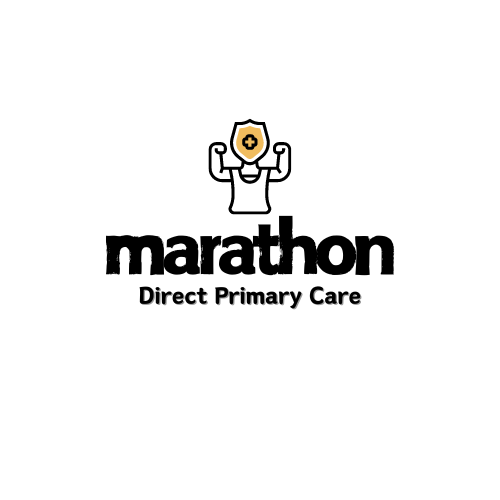This is part 1 of a 4 part series on sleep.
In today’s hustle culture, sleep is often viewed as expendable. We trade it for productivity, entertainment, or late-night workouts. But what if sleep wasn’t just “nice to have,” but the cornerstone of your health and longevity strategy? At Marathon Direct Primary Care, we believe it is — and science agrees.
Sleep isn’t passive. It’s an incredibly active biological process that rejuvenates every cell, clears toxins from your brain, and balances your hormones. In fact, when it comes to living not just longer, but better — with cognitive clarity, emotional resilience, and physical vitality — sleep is the ultimate life insurance policy.
Sleep sits at the base of the “Longevity Pyramid.” Nutrition, exercise, emotional well-being — all depend on quality sleep to be truly effective. When sleep is compromised, even the healthiest diet and best workout plan won’t deliver their full benefits.
During deep sleep (also called slow-wave or Non-REM stages 3 and 4), your body focuses on physical repair:
Muscle and tissue restoration
Immune system fortification
Removal of metabolic waste products from the brain (via the glymphatic system)
In REM sleep, your brain does its maintenance work:
Emotional regulation
Memory consolidation
Creativity and problem-solving enhancement
Skipping or shortening sleep means missing out on these critical processes. Over time, this impacts everything from your risk for Alzheimer’s and cardiovascular disease to your ability to manage stress and perform at your best.
Sleep deprivation doesn’t just make you groggy — it triggers a cascade of health risks:
Impaired glucose metabolism → Increased risk for insulin resistance and Type 2 diabetes
Hormonal imbalances → Reduced testosterone, increased ghrelin (hunger hormone), decreased leptin (satiety hormone)
Weakened immunity → Higher susceptibility to infections and even cancer
Neurodegeneration → Increased risk for Alzheimer’s and cognitive decline
Cardiovascular strain → Elevated blood pressure, arterial stiffness, increased risk of stroke
In fact, chronic sleep restriction has been linked to shortened telomeres, the biological markers of aging. Put simply: less sleep = faster aging.
It’s not just about logging hours. The quality of your sleep matters, too. Research shows that:
Sleep regularity (going to bed and waking up at the same time) stabilizes circadian rhythms
Sleep continuity (sleeping through the night without waking often) improves deep sleep
Avoiding disruptors like alcohol, caffeine, blue light, and late-night meals preserves sleep architecture
If you cut your sleep to 6 hours a night, you could lose up to 70% of your REM sleep, which is crucial for emotional health and cognitive performance.
At Marathon Direct Primary Care, we take sleep seriously — as seriously as your nutrition, exercise, and metabolic health. As part of our Longevity Playbook, we help members:
Identify sleep disruptors through detailed intake and wearable data
Build personalized sleep hygiene protocols (light management, temperature control, meal timing)
Optimize circadian health using tools like the Oura Ring or Eight Sleep mattress technology
Monitor hormonal contributors to sleep (like testosterone, cortisol, and progesterone)
Balance stress and relaxation strategies to ease into restful sleep
Remember: Sleep isn’t downtime. It’s when your body performs its most essential work.
Sleep is the secret weapon of high performers, resilient minds, and those seeking not just to live long — but to thrive deep into later life. Don’t leave it to chance. Make sleep your priority and watch how every other pillar of your health falls into place.
At Marathon Direct Primary Care, we’re here to guide you toward smarter sleep and a longer, healthier life.
Ready to optimize your sleep and longevity?
Contact us today to learn how personalized care and data-driven strategies can help you sleep — and live — better.
This post is for educational purposes only and should not be construed as medical advice. Please consult your physician for any and all medical concerns/questions.

Follow us on social media